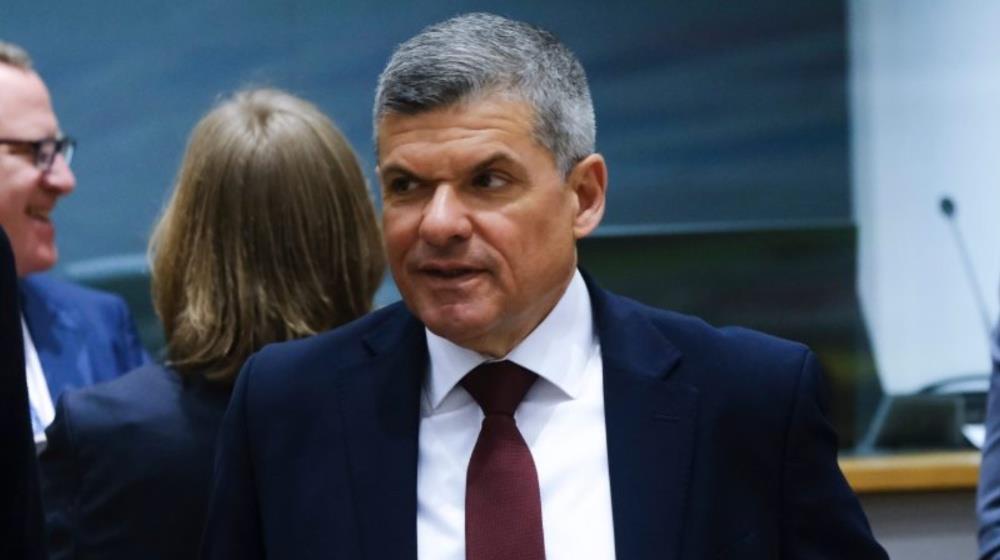Fuel prices are expected to rise temporarily due to the ongoing crisis in the Middle East, Energy Minister George Papanastasiou has said, attributing part of the pressure to psychological factors influencing market behaviour.
He also said that the global diversification of crude oil production reduces dependence on the region, thereby lessening the long-term impact.
Speaking to CNA, the Minister reassured that Cyprus maintains adequate strategic fuel reserves and is closely monitoring the situation in coordination with fuel traders. He added that he retains the authority to intervene should there be any “suspicious price fluctuations.”
“Any geopolitical crisis—especially in fossil fuel producing regions—will inevitably affect prices,” he said, adding, that “if we weren’t concerned, we wouldn’t be realistic.”
Papanastasiou noted that the key issue is whether price fluctuations are based on actual supply disruptions or driven by psychological insecurity among traders. “When risk is high for fuel traders, it's expected they will seek higher returns,” he noted.
He further explained that the influence of geopolitical tensions on fuel prices has decreased over the years, largely due to the growing geographical spread of crude oil production. The United States and other regions, he said, have significantly ramped up production capacity, reducing the previous over-reliance on the Arabian Gulf.
“Crude oil production is now more diversified, something which reduces global dependence on the Gulf region,” he said. He pointed out that while previously 25–30% of global crude oil consumption passed through the Strait of Hormuz, the current figure stands at just around 10%.
Despite this, the Minister acknowledged that the current Israel-Iran conflict is likely to trigger a temporary spike in prices.
“There will be a sharp increase—what we call a ‘spike’—but once traders and consumer countries realise that the developments in the region don’t significantly affect energy supply, the price curve will drop again,” he said.
He added that prices are expected to eventually stabilise at slightly higher levels than before the crisis began. Since oil prices were relatively low prior to the crisis, the increase starts from a lower baseline. This relative stability, he said, is also due to lower fossil fuel dependence in many countries and the ongoing energy transition, especially in Europe and other regions.
Papanastasiou clarified that these assessments assume that the situation does not escalate further or involve additional countries. He also noted that prices have already begun to ease compared to the early days of the crisis.
Supply security through strategic reserves and continuous market monitoring
Asked about Cyprus’ energy security, given the country’s continued reliance on fossil fuels, the Minister said that dependence has been gradually decreasing, despite challenges in fully integrating renewable energy sources and reducing electricity costs.
However, he acknowledged that a significant dependence remains, especially on transportation and aviation fuels. He explained that the Ministry remains in close contact with fuel traders and is actively monitoring the situation.
He also emphasised that the government holds strategic reserves across all fuel types, designated for use during crises. A recent release of jet fuel was authorised by ministerial decree, he said, due to the loss of Haifa as a supply source and the increased role of Cyprus as a transit hub.
Nevertheless, Papanastasiou stressed that the strategic reserves will only be used cautiously and based on clear criteria, and only when commercial stockpiles cannot meet demand quickly enough. “These reserves are vital and must be preserved for real crises. At this point, we are not in such a crisis,” he said.
Under EU regulations, Cyprus is required to maintain at least 90 days' worth of fuel based on the previous year's consumption.
Papanastasiou said the Ministry is monitoring both fuel supply security and price volatility. He also pointed out that he has the legal authority to intervene if unjustified price changes are detected.
“At the moment, we are not seeing any unusual movements in fuel prices,” he noted, adding that small increases of about 1.5–2 cents per liter are justifiable, based on the most recent shipments.
On calls to suspend upcoming green taxation on fuel due to the current situation, the Minister explained that these taxes are linked to EU commitments and implementation has already been postponed once or twice.
He acknowledged, however, public concerns over fuel prices and said the government is currently assessing the potential economic impact of the planned tax.
(Source: CNA)









